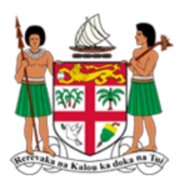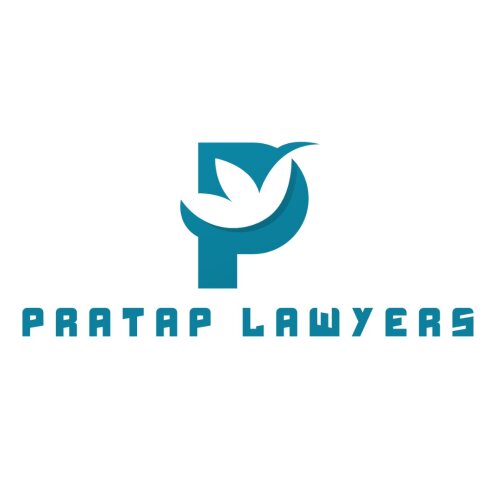Best Sanctions & Export Controls Lawyers in Fiji
Share your needs with us, get contacted by law firms.
Free. Takes 2 min.
Or refine your search by selecting a city:
List of the best lawyers in Fiji
About Sanctions & Export Controls Law in Fiji
Sanctions and export controls law in Fiji governs the movement of goods, services, technology, and financial transactions across the country's borders, especially when those involve restricted destinations or parties. These laws ensure that Fiji honors its international commitments, including those established by the United Nations and regional organizations. Sanctions are legally binding measures, such as trade bans or asset freezes, imposed to achieve foreign policy and national security objectives. Export controls restrict or regulate the export or re-export of specific goods, information, or technologies to protect national security, prevent the proliferation of weapons, and comply with international obligations. Compliance with these rules is crucial for businesses, individuals, and organizations involved in foreign trade or any cross-border activity.
Why You May Need a Lawyer
Legal assistance in sanctions and export controls may be needed in many situations. Here are some common scenarios:
- Conducting international business transactions where foreign regulations may apply
- Exporting or importing goods that could be subject to regulatory restrictions
- Receiving or sending funds to or from countries or persons targeted by sanctions
- Advising foreign nationals or multinational companies on Fijian compliance requirements
- Challenging or disputing a sanctions listing or enforcement action
- Ensuring lawful participation in humanitarian or charity initiatives in sanctioned jurisdictions
- Understanding licensing or exceptions under local or international sanctions regimes
- Managing risk in mergers, acquisitions, or financial investments with exposure to sanctioned entities
Local Laws Overview
Fiji’s legal system implements sanctions primarily via acts of Parliament and regulations made under those acts. The United Nations Act 1945 is a central legislative tool that allows the Fijian government to give effect to United Nations Security Council Resolutions, including imposing trade, travel, and financial sanctions against designated countries, entities, or individuals. The Customs Act 1986 and associated regulations control exports and imports, especially concerning items that may have military or dual-use purposes. Exporters and importers must often obtain permits or licenses from the Fiji Revenue and Customs Service (FRCS) or relevant government ministries. Violations of these laws can lead to strict penalties. Fiji also periodically updates a list of restricted items and may announce additional controls in response to specific global events or international obligations.
Frequently Asked Questions
What are sanctions in Fiji?
Sanctions in Fiji are legal measures that restrict or prohibit dealings with certain countries, entities, or people as determined by the government or international bodies such as the United Nations.
What is the purpose of export controls?
Export controls aim to regulate or limit the transfer of certain goods, technology, or information across borders for reasons relating to national security, prevention of crime, and compliance with international obligations.
Who implements sanctions and export controls in Fiji?
Sanctions are generally implemented and enforced by the Fijian government through relevant agencies such as the Fiji Financial Intelligence Unit and the Fiji Revenue and Customs Service.
Do UN sanctions automatically apply in Fiji?
UN sanctions do not automatically apply; the Fijian government enacts domestic laws or regulations to give effect to United Nations sanctions within Fiji’s legal system.
What are the penalties for breaching sanctions or export controls in Fiji?
Penalties can include substantial fines, confiscation of goods, loss of licenses, and in serious cases, imprisonment, depending on the nature and severity of the breach.
Are there exemptions or licenses available under Fiji’s export controls?
Yes, Fiji’s law may allow for exemption certificates or special licenses for certain transactions, usually subject to a formal application and strict regulatory oversight.
How do I know if a product is subject to export controls?
You should consult the relevant Fijian laws, customs regulations, and official lists of controlled items, or seek professional legal advice for clarity regarding your specific product.
Can I challenge a sanctions listing or enforcement action?
In certain circumstances, affected individuals or entities can seek a review or challenge sanctions decisions, typically through administrative or judicial processes with the help of legal counsel.
What should I do if I suspect a transaction may violate sanctions?
Immediately halt the transaction and seek legal advice. Self-reporting to the authorities may be required or advisable, depending on the facts of the case.
Do Fijian sanctions apply to digital transactions or cryptocurrencies?
Sanctions and export controls apply to all forms of transactions - including digital and cryptocurrency transactions - if they involve restricted entities, regions, or purposes covered by Fijian law.
Additional Resources
If you require further information or assistance regarding sanctions and export controls in Fiji, the following resources and organizations may be helpful:
- Fiji Revenue and Customs Service (FRCS) - For advice on import and export permits, licenses, and customs regulations
- Fiji Financial Intelligence Unit (FIU) - For information on financial sanctions and anti-money laundering compliance
- Ministry of Foreign Affairs - For updates on international obligations, sanction designations, and diplomatic matters
- Attorney-General's Office - For policy, legislative queries, and links to legal professionals
- Fiji Commerce & Employers Federation - For assistance and representation for businesses affected by sanctions or export controls
- Local accredited law firms - For specialized legal advice on compliance, risk management, and legal representation
Next Steps
If you believe your business, organization, or personal activities may involve issues around sanctions or export controls in Fiji, consider the following steps:
- Identify whether your goods, technology, or transactions are subject to any sanctions or export control restrictions
- Gather all relevant documentation, including contracts, shipping details, and correspondence
- Consult the Fiji Revenue and Customs Service, Financial Intelligence Unit, or the Ministry of Foreign Affairs for up-to-date information
- Seek advice from a qualified legal professional experienced in Fiji’s sanctions and export controls law
- Develop internal compliance programs or training for your staff to ensure ongoing compliance
- If facing enforcement action or investigations, engage a lawyer promptly to protect your rights and interests
Lawzana helps you find the best lawyers and law firms in Fiji through a curated and pre-screened list of qualified legal professionals. Our platform offers rankings and detailed profiles of attorneys and law firms, allowing you to compare based on practice areas, including Sanctions & Export Controls, experience, and client feedback.
Each profile includes a description of the firm's areas of practice, client reviews, team members and partners, year of establishment, spoken languages, office locations, contact information, social media presence, and any published articles or resources. Most firms on our platform speak English and are experienced in both local and international legal matters.
Get a quote from top-rated law firms in Fiji — quickly, securely, and without unnecessary hassle.
Disclaimer:
The information provided on this page is for general informational purposes only and does not constitute legal advice. While we strive to ensure the accuracy and relevance of the content, legal information may change over time, and interpretations of the law can vary. You should always consult with a qualified legal professional for advice specific to your situation.
We disclaim all liability for actions taken or not taken based on the content of this page. If you believe any information is incorrect or outdated, please contact us, and we will review and update it where appropriate.
Browse sanctions & export controls law firms by city in Fiji
Refine your search by selecting a city.

















